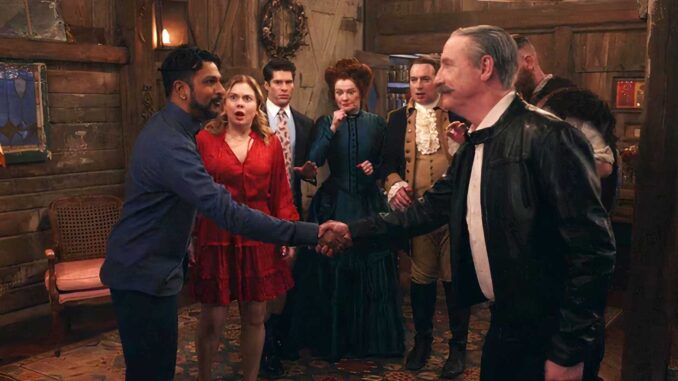
The very notion of a ghost, in its most classic form, evokes a solitary sorrow: a spectral echo tied inextricably to a specific location, reliving a loop of tragedy, or perhaps simply waiting for an unknown release. These phantoms, forever bound to a dusty manor, a battlefield, or the scene of their demise, whisper tales of unfinished business and lingering attachments. Yet, this very traditionalism, while powerful, also imposes a significant narrative limitation. What if we untether the phantom? What if the spectral tether snaps, or was never truly there? Reimagining the foundational plot of the ghost story, moving beyond mere haunting, does more than just invigorate the genre; it throws open the doors to a multiverse of crossover possibilities, creating narrative bridges where none existed before.
Traditionally, a ghost is the ultimate homebody. Its existence is defined by its locus: the creaking floorboards of Blackwood Manor, the chilling breeze on a deserted highway where an accident occurred, the faint scent of pipe smoke in a study where a scholar once toiled. This fixity is integral to the horror and pathos. The terror comes from the inescapable presence, the tragedy from the inability to move on. However, this also means that for any interaction with another fictional universe, the characters of that universe must come to the ghost. Sherlock Holmes would have to visit the haunted house; the crew of the Enterprise would need to beam down to the haunted planet. The ghost itself remains a passive, albeit terrifying, fixture.
But what if the "stuckness" isn't an ironclad rule of the afterlife, but a condition, a curse, or even a choice? Imagine a ghost who, instead of being bound, is simply lost. A spirit adrift in the astral plane, perhaps accidentally crossing into our dimension, or even other dimensions. This simple shift—granting mobility—immediately creates opportunities for interaction. A ghost, no longer tethered, could follow a character from one show into their own narrative. A spectral detective from the 1920s, unburdened by space, could appear in a modern police procedural, offering cryptic clues only the psychic protagonist can discern, or even possessing an object to leave a vital piece of evidence. The phantom becomes an active participant, not just a chilling backdrop.
Expanding on this, consider reimagining the nature of ghostly existence. What if ghosts aren't just residual energy, but conscious, evolving entities learning new spectral abilities? A ghost might initially be a faint whisper, but over centuries, learns to manipulate electricity, possess the living, or even project illusions. This deepening of the lore allows for truly compelling crossovers. A demon-hunting team from a show like Supernatural could encounter not just a standard poltergeist, but an ancient, powerful ghost who has become a master of the ethereal plane, perhaps even forming alliances or rivalries with other supernatural beings. The rules of their afterlife could intersect with the cosmologies of angels, demons, or deities from another series, creating a complex new layer of inter-dimensional conflict and cooperation.
Furthermore, a reimagined ghost could be a living (or rather, unliving) historical record. Unconstrained by time’s arrow, a mobile ghost who has observed centuries of human activity could be a walking, talking library of forgotten secrets. Imagine a ghost from the French Revolution appearing in a modern political thriller, whispering forgotten conspiracies that could dismantle a contemporary power structure. Or a spectral witness from an ancient civilization offering vital intel to an archaeological expedition from a National Treasure-esque franchise. In such scenarios, the ghost is not merely a source of fright but a unique fount of information, a narrative deus ex machina that feels earned because its existence allows for such timeless knowledge.
The most profound potential, however, lies in the agency of these reimagined spirits. What if ghosts have a purpose beyond just haunting, perhaps a mission bestowed upon them by an unseen force, or a personal quest that transcends their earthly demise? A ghost burdened with a cosmic secret could wander between universes, attempting to warn different iterations of humanity about an impending multiversal collapse, thus crossing over with a science fiction epic like Doctor Who or Fringe. The spectral plane could become an interdimensional subway system, with certain "stations" being particularly haunted locales where the veil between worlds is thin, allowing for characters from disparate shows to literally bump into each other.
In essence, by releasing ghosts from their narrative shackles, by granting them mobility, evolving powers, and active agency, we transform them from isolated incidents into potential catalysts for grander, interconnected narratives. The traditional ghost story, while timeless, confines its haunting to a single stage. A reimagined ghost plot, however, suggests a universe where the spectral and the corporeal are constantly interacting, where the dead might still have a role to play in the affairs of the living, and where the echoes of the past can reverberate across the boundaries of genre, opening the door to a truly infinite landscape of crossover possibilities. It’s not just about a ghost appearing in another show; it’s about the very fabric of fictional reality becoming porous, inviting a grand tapestry of interconnected tales where the spectral and the solid dance on the same stage.